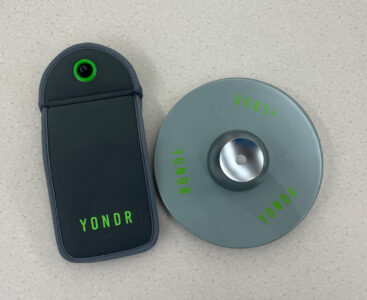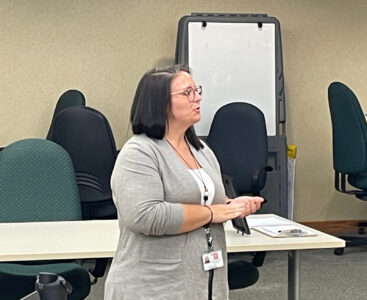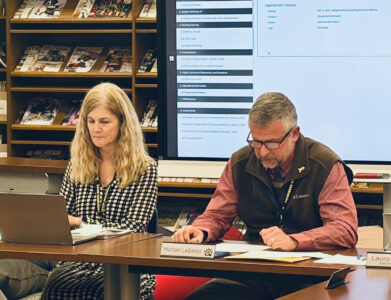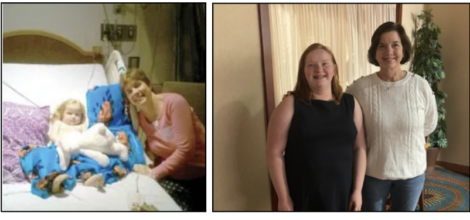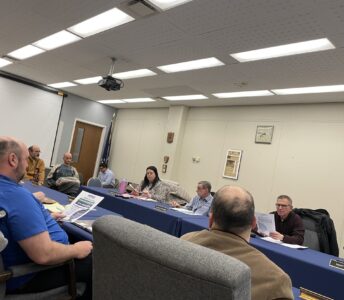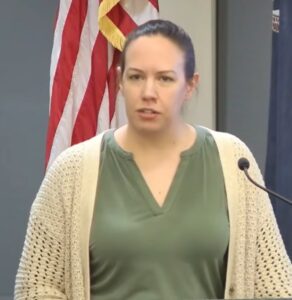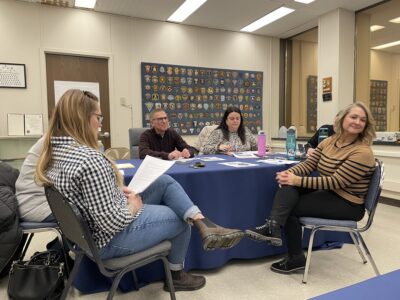JHS Students Will Use Pouches To Store Cellphones
- Shown is a cellphone pouch, and a device to unlock the phone. P-J photo by Michael Zabrodsky
- Jamestown High School Principal Allyson Smith addresses the members of the Jamestown Public Schools Board of Education. P-J photo by Michael Zabrodsky
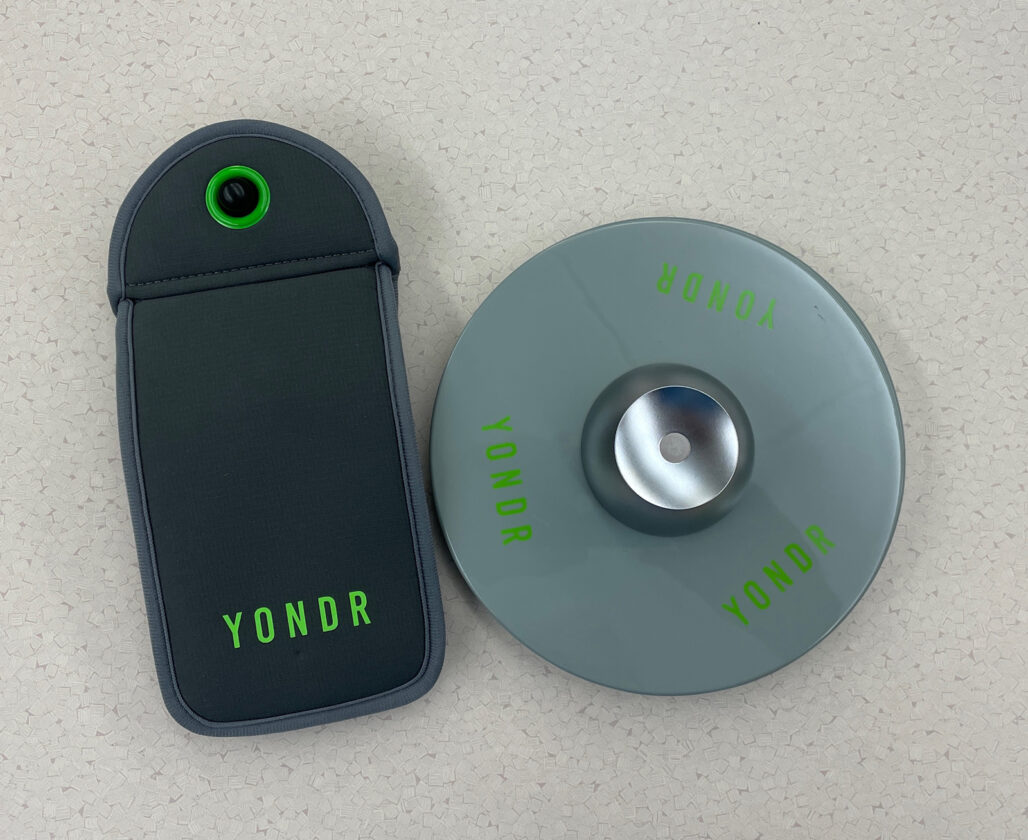
Shown is a cellphone pouch, and a device to unlock the phone. P-J photo by Michael Zabrodsky
A new cellphone policy will be followed by students at Jamestown High School.
At their meeting Tuesday, members of the Jamestown Public Schools Board of Education learned that JHS students will use locked pouches to hold their cellphones. District teachers and administrators will have devices to unlock the pouches.
By the start of school, districts across New York State will have to have policies in place to adhere to the new cellphone law.
In May, Gov. Kathy Hochul announced the distraction-free law will take effect this fall for the 2025-2026 school year.
The state law requires bell-to-bell restrictions on smartphones in K-12 schools. The requirement also applies to charter schools as well as Boards of Cooperative Educational Services (BOCES).

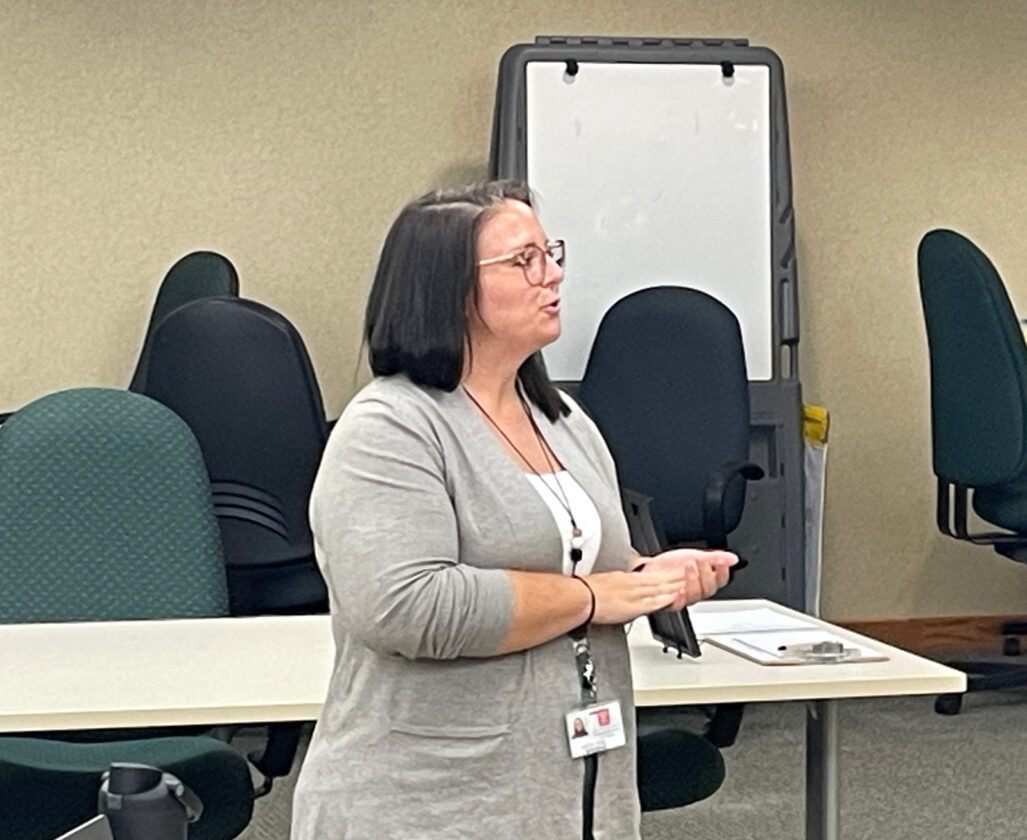
Jamestown High School Principal Allyson Smith addresses the members of the Jamestown Public Schools Board of Education. P-J photo by Michael Zabrodsky
JHS Principal Allyson Smith said the elementary and middle schools won’t see much change, but the most change will be at the high school.
“We know that the changes for bringing cellphones to school and things are going to be much different at the high school compared to middle schools and elementary schools,” Smith said. “Their (middle and elementary schools) plans are pretty similar to what they’ve had going for the last several years.”
Smith added that the new state law actually helped the district, where more of a focus is on teaching and learning and help students not be distracted.
“We are pivoting to a policy or a system where students will have these pouches,” Smith said.
Before the school year starts, students must get pouches from the district. As part of the procedure, students will arrive in the morning with their internet-enabled electronic devices, including smartwatches, inside the locked pouch, Smith said.
The principal noted that ninth- through 11th-grade students will enter JHS through the front doors, and 12th-grade students will enter JHS through the school store doors.
“Those doors will be manned by designated staff that have been assigned a morning door duty,” Smith said. “When they (students) come in with their locked pouch, a staff member will kind of give that (pouch) a squeeze to make sure that there are devices in there at all, because when they are closed, sometimes it’s a little difficult to tell if there’s anything inside.”
What she doesn’t want to see happen is students entering school with empty pouches.
“We don’t want just kids walking through (and saying) ‘yep, I got a pouch, but it’s completely empty and their phones in their pocket or something like that. So we’ll be giving the pouch a squeeze, and they’ll be on their way, Smith said.
The principal said that during the school day, students are responsible for their own belongings and items in the pouch.
At the end of the school day, students will get their pouches unlocked with devices that are located near exit doors. She noted there are different types of locking devices: table mounted, wall mounted, and handheld.
If a student should forget his or her device, there is a designated door which the student will enter. If a pouch gets lost, damaged or destroyed, and can’t be used anymore, the student is responsible for purchasing a new pouch. It is similar to the school’s iPad policy. Administrators and teachers are still discussing, Smith said, whether or not to install a device in a designated area at JHS in case of a student who forgets to unlock the pouch at the end of the school day, and arrives home realizing the pouch is still locked.
There are other scenarios Smith also talked about and she said more scenarios may arise as students, teachers, staff, and administrators get more familiar with the routine.
Superintendent Dr. Kevin Whitaker said while the new law doesn’t pertain to adults, the administration has asked the adults in JHS to be good role models.
“There are a number of spaces all over each school where adults can go, that kids aren’t allowed to go, and they (adults) can use their phones if they need to for professional services,” Whitaker said.
For more information on the district cellphone policy, visit jpsny.org/rescources/phone-free-schools.

